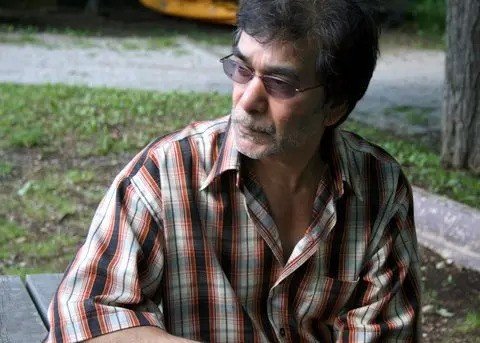Kipligat's Chance by David N. Odhiambo
Did you ever hear the tale told by the people of Ghana about how wisdom was spread?
Long, long ago- and once upon a time- an old man named Kwaku Ananse had all the wisdom in the world. But he was a selfish man and did not want to share his good fortune with anyone. Kwaku decided he would collect his wisdom into a large pot and hide it at the top of a tall tree. One dark night he tied the pot of wisdom to his back. He found a tall, tall tree and tried to climb it. But the pot was large and awkward and Kwaku made slow progress.
Suddenly laughter rang out behind him. Kwaku turned around and saw his son Ntikuma. The boy was bent in two, laughing at the spectacle his father made climbing with a pot on his back. Kwaku hated to be laughed at. He untied the big pot and tossed it at his son. Little pieces of wisdom floated everywhere. And that's how wisdom was spread.
It looks like some of that wisdom found its way into Kipligat's Chance, a novel by Vancouver's David Odhiambo. It's a coming-of-age story about a 16-year-old Kenyan emigrant and the trials he faces while struggling to become a track star. The novel combines the author's affection for proverbs, so prevalent in his native Kenya, with an appreciation for English literature, especially Shakespeare. Indeed, the novel reads very much like an expanded proverb or modern-day fable. It is pithy, witty, wise and unpretentious.
The story is set in a seedy section of Vancouver in the late 1970s, when John "Leeds" Kipligat and his best friend Kulvinder win spots on a select track team. The pair hopes for college scholarships. But, John's road is littered with obstacles, including his father's irascible nature, his mother's illness, his increasingly combative relationship with Kulvinder and the loss of true love. John eventually learns that "the race is not always to the swiftest, but to the one who can keep on moving."
In African culture, elders hold a special place as the keepers of traditional knowledge, including folk tales and proverbs. It is said that when an old man dies, it's as if an entire library has burnt to the ground. In Kipligat's Chance John's coach Sam, a flabby smoker, makes an unlikely elder. But it is the annoying perpetual advice of this former Olympian that most encourages the young runner: "Remember," quotes Sam. "To be better Lots, you have to be lots better."
Odhiambo gets the dub-inspired voice of his teenage hero just right. The reader deeply identifies with John who remembers what it was like to run in Kenya, where he felt like "a kite pulled into the blue sky.”
Despite his warm and lively nature, John is in trouble. He is traumatized by the loss of his older brother Koech, a track star and political activist who is missing somewhere in Kenya. Most effective are italicized scenes- John's memories of Koech and life in Kenya- that rise up in the narrative like dusty dreams.
John is also distressed by racist incidents, which often leave him feeling ambushed. All this he endures in addition to natural bouts of adolescent self-loathing. Whenever the pressures mount, John locks himself in the bathroom to slice his arms.
John sees track as the only way out. In Kenya, where his father had been a high government official, the Kipligats lived in a lovely home. In Vancouver, they occupy the lower apartment in a run-down flat on a street frequented by prostitutes. John's mother cares for an invalid teenager. (Her teaching certificate is invalid in Canada). His father seems to have given up on the idea of finding work.
Hastings and Cambie, Vancouver, 1970s
The Kipligats' experience is common to many who would describe themselves as new Canadians. Kulvinder, for instance, is still reeling from the death of his father in Kenya. A member of Kenya's wealthy Indian merchant class, Kulvinder cannot come to terms with his loss of status in Canada. He drinks and takes out his anger on women.
John falls in love with Svetlana, a Polish immigrant. Her father, like John's, had been a government official before settling in Canada. John thinks the two families have much in common. But when he shows up at Svetlana's house unannounced, her father goes after him with a bat. He is outraged that his daughter is dating a black man. The scene has a comic zaniness about it, but Odhiambo makes his point: All immigrants to Canada are not considered equal.
Odhiambo's observations about race and class-consciousness play out within the dynamics of John's four-member track team. Kulvinder falls in love with his elegant teammate Erica, who is black, because she represents to him the upper class. Yet he does not take her home to meet his Indian mother.
John, on the other hand, cannot abide Erica's snooty ways. He is attracted, instead, to Vivian, whose family history fits a stereotype of life in the ghetto. Here again, Odhiambo proves original; it is unusual for a black writer to create a male character that exhibits empathy and affection for women of the black underclass.
Photo by Braden Collum
The novel spans the course of the school year. At first John's emotional woes weaken his commitment to running. After a while, these same difficulties become his motivation. He realizes all obstacles must be overcome if one intends to succeed. Which recalls the famous proverb espoused by Dr. Martin Luther King:
If you can't fly, then run.
If you can't run, then walk.
If you can't walk, then crawl.
But whatever you do, keep moving.
A previous version of this review appeared in The Toronto Star.








